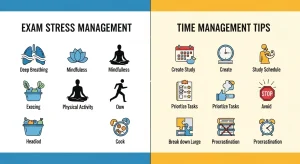Sugar is everywhere — from your morning cereal to your afternoon soda. But how much sugar is too much? And what does it really do to your body? This article uncovers the truth about sugar, its effects on your health, and how to manage your daily sugar intake wisely.
⚠️ What is Sugar and Why Should You Care?
Sugar is a type of simple carbohydrate that provides quick energy. Naturally occurring sugars are found in fruits, vegetables, and dairy. However, the real concern lies in added sugars—those sneaky sweeteners added during food processing.
The problem?
Most people consume far more sugar than they realize, contributing to rising rates of obesity, diabetes, and heart disease.
📊 Recommended Daily Sugar Intake
According to the World Health Organization (WHO) and American Heart Association (AHA), here are the suggested limits for added sugar:
| Group | Max Daily Sugar Intake |
|---|---|
| Adult Women | 25 grams (6 teaspoons) |
| Adult Men | 36 grams (9 teaspoons) |
| Children (age 2+) | 25 grams (6 teaspoons) |
🔍 Note: The average adult in the U.S. consumes about 77 grams of added sugar daily—over 3x the recommended amount!
Healthy Desserts & Snacks to Satisfy Your Cravings
🧪 The Effects of Too Much Sugar on the Body
1. Weight Gain & Obesity
High sugar intake is linked to increased fat storage, especially visceral fat, leading to obesity and metabolic issues.
2. Increased Risk of Type 2 Diabetes
Sugar spikes insulin levels, which over time can lead to insulin resistance—a key risk factor for type 2 diabetes.
3. Heart Health Concerns
Consuming too much sugar increases inflammation, triglyceride levels, and blood pressure, all of which raise the risk of heart disease.
4. Tooth Decay
Sugar fuels harmful bacteria in your mouth, leading to cavities and tooth decay.
5. Mental Health Impact
Research links high sugar diets with anxiety, mood swings, and even depression.
🔍 Hidden Sugars: Where Sugar Hides in Your Diet
Sugar doesn’t just come from candy and soft drinks. It hides in “healthy-looking” foods too!
Common Sources of Hidden Sugar:
-
Flavored yogurts
-
Breakfast cereals
-
Granola bars
-
Pasta sauces
-
Salad dressings
-
Sports drinks
-
Ketchup and condiments
🧾 Look for labels like:
-
Corn syrup
-
Dextrose
-
Maltose
-
Cane juice
-
Fructose
-
Glucose
-
Sucrose
Plant-Based Protein Revolution: Fueling Health & Sustainability
✅ How to Reduce Sugar Intake Effectively
Cutting back on sugar doesn’t mean giving up flavor. Follow these simple tips to manage your daily sugar intake:
Smart Swaps:
-
Choose unsweetened beverages (tea, water, or black coffee)
-
Eat fresh fruits instead of desserts
-
Opt for whole grain cereals without added sugar
-
Use cinnamon or vanilla to flavor food naturally
Label-Reading Tips:
-
Check “Total Sugars” and “Added Sugars” on the nutrition label
-
Aim for products with less than 5g of added sugar per serving
-
Avoid items where sugar is in the first 3 ingredients
🍭 Natural vs. Added Sugar: What’s the Difference?
| Type | Source | Effect on Body |
|---|---|---|
| Natural Sugar | Fruits, veggies, dairy | Comes with fiber, vitamins |
| Added Sugar | Processed foods, soda | Empty calories, spikes insulin |
🎯 Key takeaway: Natural sugars in whole foods are much healthier because they come with essential nutrients and fiber.
🧠 The Psychology of Sugar Cravings
Craving sugar? You’re not alone. Sugar activates dopamine release in the brain, giving you a “reward” feeling—similar to addictive substances.
To beat cravings:
-
Drink water when cravings hit
-
Distract with a 10-minute activity
-
Eat protein-rich snacks like nuts or boiled eggs
-
Ensure you’re getting enough sleep
Workplace Burnout & Mental Health Support: A Modern Guide to Thriving at Work
❓ FAQ: The Truth About Sugar
1. How much sugar is too much in one day?
For adults, more than 25–36 grams of added sugar daily is considered excessive. That’s roughly 6–9 teaspoons.
2. Are natural sugars bad for you?
No. Natural sugars from whole foods like fruits and dairy are safe and nutritious when consumed in moderation.
3. What are the signs of eating too much sugar?
Watch out for fatigue, acne, weight gain, mood swings, frequent hunger, and energy crashes—these are common symptoms of high sugar consumption.
📣 Take Control of Your Sugar Intake Today!
Understanding the truth about sugar is the first step to a healthier lifestyle. Start small—swap sugary snacks for fruits, read nutrition labels, and be mindful of hidden sugars.
👉 Ready to cut down on sugar? Try this Click low-sugar recipe book for a healthier you!











